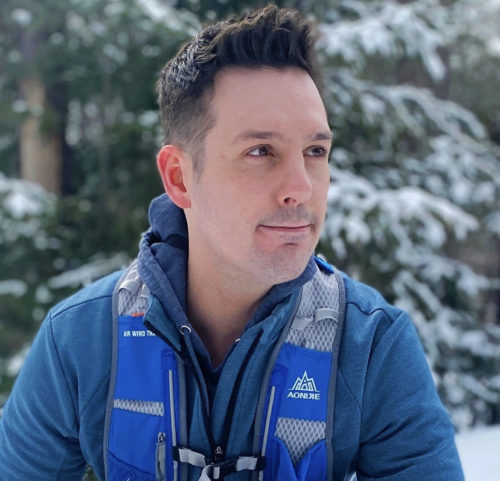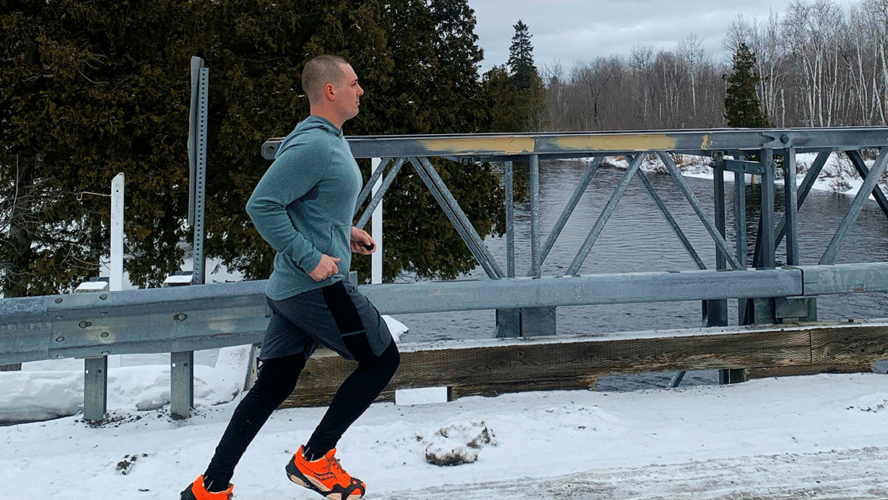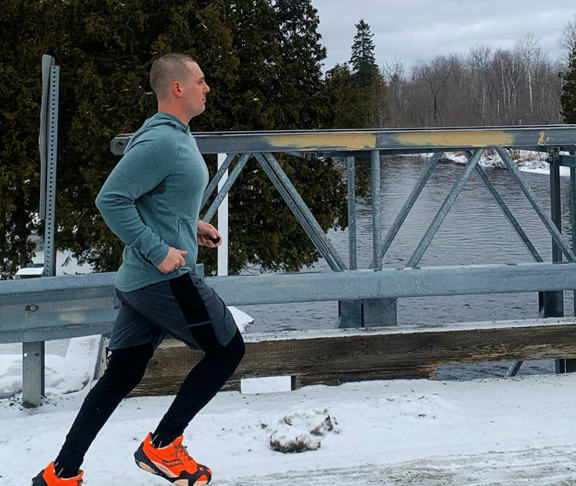
Josh Rheaume
@the.asthma.runner on Instagram

How did you first become interested in health and fitness, and what role has asthma played in shaping your journey?
Ever since I was a kid, I have always wanted to live a fit and healthy lifestyle. Sports for me, were always monitored and limited due to my breathing issues, and the tendency for my asthma to go from zero to one hundred so fast during even the smallest amount of physical activity. Running was certainly never an option for me as a kid; it was highly advised against by my doctors, parents, and the amount I needed to take my inhaler was just not sustainable. Fast forward through high school and college, I would stick to lifting weights with very minimal cardio as my form of physical activity, completely shying away from really any amount of cardiovascular activity. In 2021 I had become overweight, was diagnosed with a fatty liver, and I was just not happy with myself. It was at that time that I decided I needed to take my health back into my own hands and attempt something I thought I could never do. And that’s when I discovered running. Due to the severity of my asthma, I had to modify my training around my limitations. As I continued to train, I discovered I was able to go longer distances and longer amounts of time without having to take my inhaler. I felt then that what I was doing was conditioning my lungs over time. I was hooked.

Could you share some of the biggest challenges you faced while pursuing fitness goals with asthma, and how did you overcome them?
Once I realized the more I trained, the more my lungs were becoming conditioned, or limitless for a lack of a better word, I began setting goals for myself that, never in a million years, did I think I’d be setting. The number one challenge for me continues to be flare ups with my lungs from things such as colds or other sicknesses that naturally affects my breathing. Because of this, completing a full marathon training program has been difficult, but I’m continuing to work towards it and have thus far ran 5 half marathons!

How has your approach to training evolved over time as you learned more about managing asthma and optimizing your fitness?
I have learned over time, since beginning my training, that I am inevitably going to have bad days to go along with my good days. I try not to let this affect me too much and I always remain optimistic knowing that I am on the right track to bigger and better things. If I am having a difficult time running on a certain day, I may instead choose to go for a bike ride or use the treadmill, which is less impactful on my lungs.

How do you balance your fitness goals with the need to prioritize your respiratory health? Any tips for finding that balance?
I find that ever since beginning my fitness journey, or running to be more specific, my general lung health, and ability to conduct any sort of physical activity has vastly improved, to the point where I sometimes realize I have forgotten to bring my puffer with me to places, which is completely new to me. I truly believe that having discovered running, and the positive affects that it has on my lungs is, in a sense, prioritizing my respiratory health, and at the same time my physical health. Creating a healthy balance between your respiratory health and physical health, especially when starting out in any new routine, can be extremely tough and at times disheartening. Set realistic goals for yourself, no matter how small they may be, reach them, and keep setting that bar higher and higher.

Can you share some of the key lessons or insights you’ve gained from your experience that might inspire or motivate others with asthma?
One of the biggest lessons I learned through my training thus far, is that, although my lungs are continuing to become impervious to my running, the rest of my body is not. Around the time of my first half marathon, I began developing shin splints (micro/pressure fractures of the shin bones due to overtraining), as this is new for my body and I became over zealous with the need to push myself harder and harder. It’s important to take things slow, and allow your body to adjust to whatever it may not be used to. Always be patient and realize early that any positive change can take time. Start small and win big.


